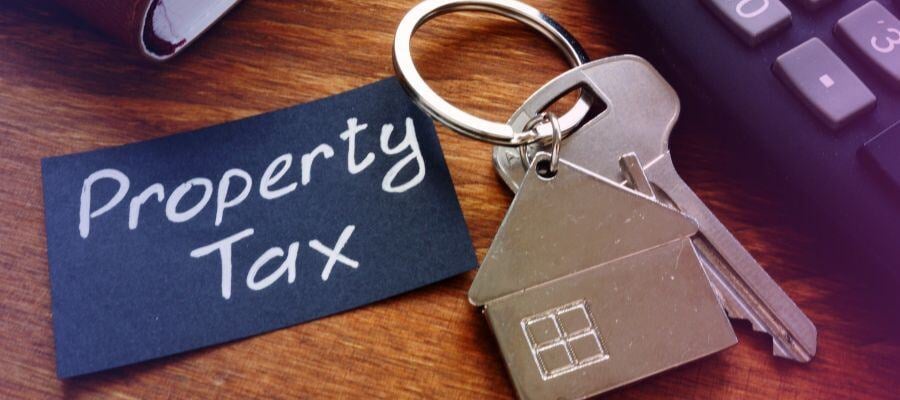
Property Tax Assessments: Understanding Accuracy

Have you ever wondered why we pay so much attention to property tax assessments? As an integral part of the real estate investment landscape, understanding how tax assessments work, and more importantly, who verifies their accuracy, is crucial. This blog post aims to decode the complex process of tax assessments and bring to light the role of different stakeholders in ensuring their accuracy.
Understanding Property Tax Assessments
At its core, a property tax assessment is an official estimate of the value of a property. It forms the basis for the calculation of the property taxes you will owe the local government. While the process of valuation varies from place to place, common elements factored in usually include the property's size, location, and modern upgrades. For real estate investors, having accurate property data at your fingertips, can immensely simplify comp analysis and finding potential deals.
The Accuracy of Property Tax Assessments
Why is the accuracy of property tax assessments so important? It primarily affects two things: the amount of property tax to be paid and the interest of potential buyers or investors. An accurate assessment means fair taxation; an inaccurate one may cause you to pay more than your fair share or scare off potential buyers due to the overstated value. Either way, the effects on real estate investing can be considerable.
Who Verifies Tax Assessments’ Accuracy?
Now coming to the million-dollar question - who verifies the accuracy of property tax assessments? While the responsibility primarily lies with the County Assessor's Office, property owners and investors need to take an active role in verifying the correctness of these assessments. Let's delve a bit deeper into the role of different stakeholders.
County Assessor’s Office
The County Assessor’s Office is entrusted with the essential task of assessing property values within the county. They apply fair and uniform practices across all properties. Still, with thousands, if not millions, of properties to assess, accuracy can often be compromised.
Limited resources and reliance on outdated data or methods can further exacerbate inaccuracies, underscoring the need for checks and balances. Regular audits and the use of modern technology, such as geographic information systems (GIS), can enhance the precision of these assessments, but challenges persist due to the sheer scale of operations.
Property Investors and Owners
Property owners and real estate investors should always verify the accuracy of assessments. This not only helps you identify potential clerical errors but also instances of over-assessment that might unfairly increase your tax liability.
By staying proactive, investors can also discover undervalued properties that could offer better deals. Additionally, engaging in periodic reviews of assessment data ensures alignment with real estate market conditions, protecting both short-term and long-term financial interests. Understanding local tax assessment processes can give investors a strategic advantage in navigating real estate opportunities effectively.
Tax Lawyers and Consultants
Professional tax consultants and lawyers can be invaluable allies while verifying the accuracy of property tax assessments. They have the expertise to navigate through complex tax laws and can help you reduce your tax liabilities effectively.
These professionals are particularly useful when dealing with disputes or appeals, as they understand the legal framework and the documentation required. They can also uncover opportunities for exemptions, deductions, or credits that property owners might overlook. Collaborating with a tax expert ensures a thorough evaluation of assessments, potentially saving substantial amounts over time.
Importance of Verifying the Accuracy and the Role of Property Data
The process of verifying the accuracy of property tax assessments can reveal critical aspects for real estate investors - right from potential errors to opportunities for a reassessment. Leveraging property data can significantly streamline this process, offering detailed information about each property in an optimally structured way for easy analysis and comparison.
Accuracy in tax assessments doesn’t just affect individual property owners; it has wider implications for market stability. Over-assessments can inflate perceived property values, deterring investors and misrepresenting market trends. Under-assessments, on the other hand, can result in revenue shortfalls for local governments, impacting community services.
Comprehensive property data empowers investors and owners to challenge discrepancies effectively. Tools such as property valuation software and real-time market data platforms provide actionable insights, enabling precise verification. Whether you’re identifying potential clerical mistakes or advocating for reassessment, using accurate data is the cornerstone of informed decision-making in real estate.
Conclusion
After understanding the nuts and bolts of property tax assessments, it is clear that the question, who verifies the accuracy of property tax assessments, has more than one answer. While the County Assessor's Office is primarily responsible, we, as property owners or investors, also need to ensure we're not being short-changed. Backed by the right tools - like proxperty data - we can venture headlong into the world of real estate investing with complete confidence.

About Samantha Ankney
Samantha is the Social Media Manager at DealMachine, where she oversees all social media strategies and content creation. With 3 years of experience at the company, she originally joined as a Media Specialist, leveraging her skills to enhance DealMachine's digital presence. Passionate about connecting with the community and driving engagement, Samantha is dedicated to sharing valuable insights and updates across all platforms.


